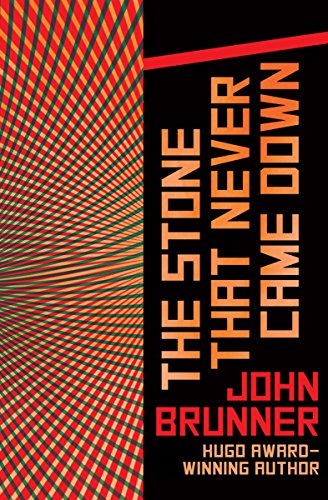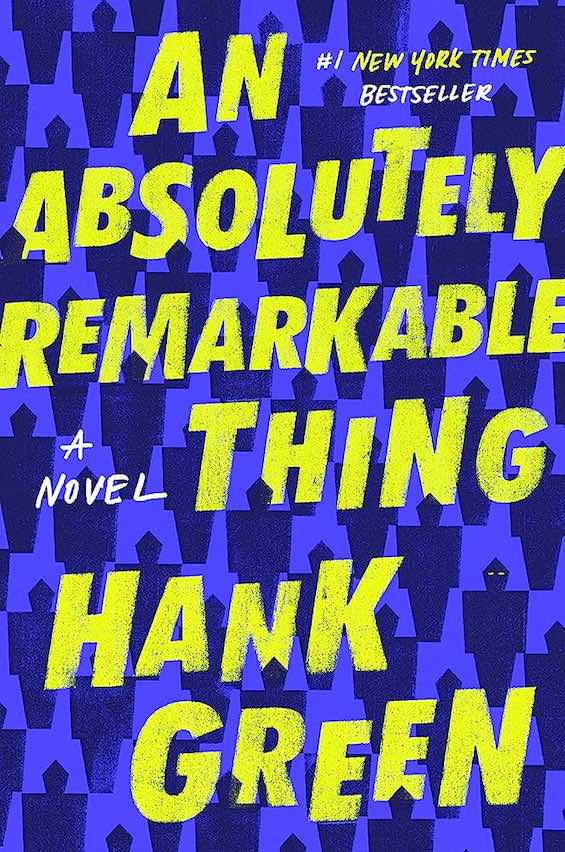
Drill down into the root causes of today’s political dysfunction, and you’ll find the problem—unsurprisingly—in the human mind. In the United States, and no doubt throughout the world, untold millions of people are in the thrall of irrationality. They indulge in magical thinking and conspiracy theories, simply refusing to face facts. But what if it were possible to “cure” them with a pill? To sweep away the cobwebs in their minds with a simple, non-toxic, long-lasting drug—a cure for irrational thinking? It’s a nice fantasy, isn’t it? And British science fiction author John Brunner spun out an engaging story about it half a century ago in The Stone That Never Came Down.
Estimated reading time: 5 minutes
An unintentional alternate history of Europe in the 1970s
Brunner’s novel was set in his own time, and it reflects the preoccupations of the age (or at least his own concerns). He imagines Britain in the grip of religious extremism, with a multimillion-member movement called the Campaign Against Moral Pollution terrorizing the public with bands of roving “godhead” thugs. Meanwhile, a neo-Fascist movement is on the verge of capturing the Italian government—and war seems imminent between the Italians on the one hand and the Germans and French on the other. A war that will inevitably turn nuclear.
Now, Brunner himself may have feared such prospects, but in no way does it reflect the reality either in Britain or on the Continent in the 1970s. So, it’s probably best for a reader today to view The Stone That Never Came Down as alternate history, and let Brunner’s fantasies stand. And once you do that, you’ll need to swallow his imagined cure for irrational thinking, too..
The Stone That Never Came Down by John Brunner (1973) 206 pages ★★★★☆

A cockamamie story, but it’s entertaining
Somehow, Brunner manages to cram an army’s worth of characters and half a dozen subplots into barely more than two hundred pages. Unless you manage to retain the names of all the characters in active memory, you might find yourself turning back the pages from time to time. There’s a lot going on here. But this is the gist of it . . .
World War III threatens
World War III is on the horizon, even though those principally responsible for pushing the world to the brink seem to be entirely unaware of it. Nor is the news media conscious of the danger. But a handful of exceptionally far-sighted people in Britain know perfectly well what’s going on. That’s because they have, wittingly or not, swallowed a pill or inhaled an aerosol that affects the mind. It’s a cure for irrational thinking, so they entertain no false hopes that the world will sidestep a nuclear holocaust unless something drastic happens.
Scientists blunder into a cure for irrational thinking
The first among that handful of people are the scientists at the Gull-Grant Research Institute. They’re the ones whose efforts in the lab have led to the development of VC, a psychoactive drug of unknown properties. It’s what soon proves to be a cure for irrational thinking—among other things. It also radically heightens the senses and makes people smarter.
Combating the twin threats of religious extremism and nuclear war
All over London, godheads are running rampant. Walking about in gangs, they extort bribes from homeowners under threat of breaking all their windows or even setting fire to their homes. The police do nothing. But there is one honest detective at the Met. And he joins with the scientists in a desperate campaign to infect everyone with VC who in a position to affect the course of events. The drug proves remarkably easy to spread and soon finds itself in key places throughout Europe. You can guess what happens next.
About the author

John Brunner (1934-95) wrote scores of science fiction novels, more than a dozen collections of short stories, and many other works in a career from 1951 to his untimely death in 1995. He won the Hugo Award in 1969 for Stand on Zanzibar, his novel about overpopulation. The British Science Fiction Association gave him its top award the same year. Brunner was born and educated in Oxfordshire. Twice married, he died of a heart attack at the age of sixty in Glasgow, Scotland, while attending the World Science Fiction Convention.
For related reading
For more good reading, check out:
- These novels won both Hugo and Nebula Awards
- The ultimate guide to the all-time best science fiction novels
- 10 top science fiction novels
- The top 10 dystopian novels
- Ten new science fiction authors worth reading now
And you can always find my most popular reviews, and the most recent ones, on the Home Page.


























